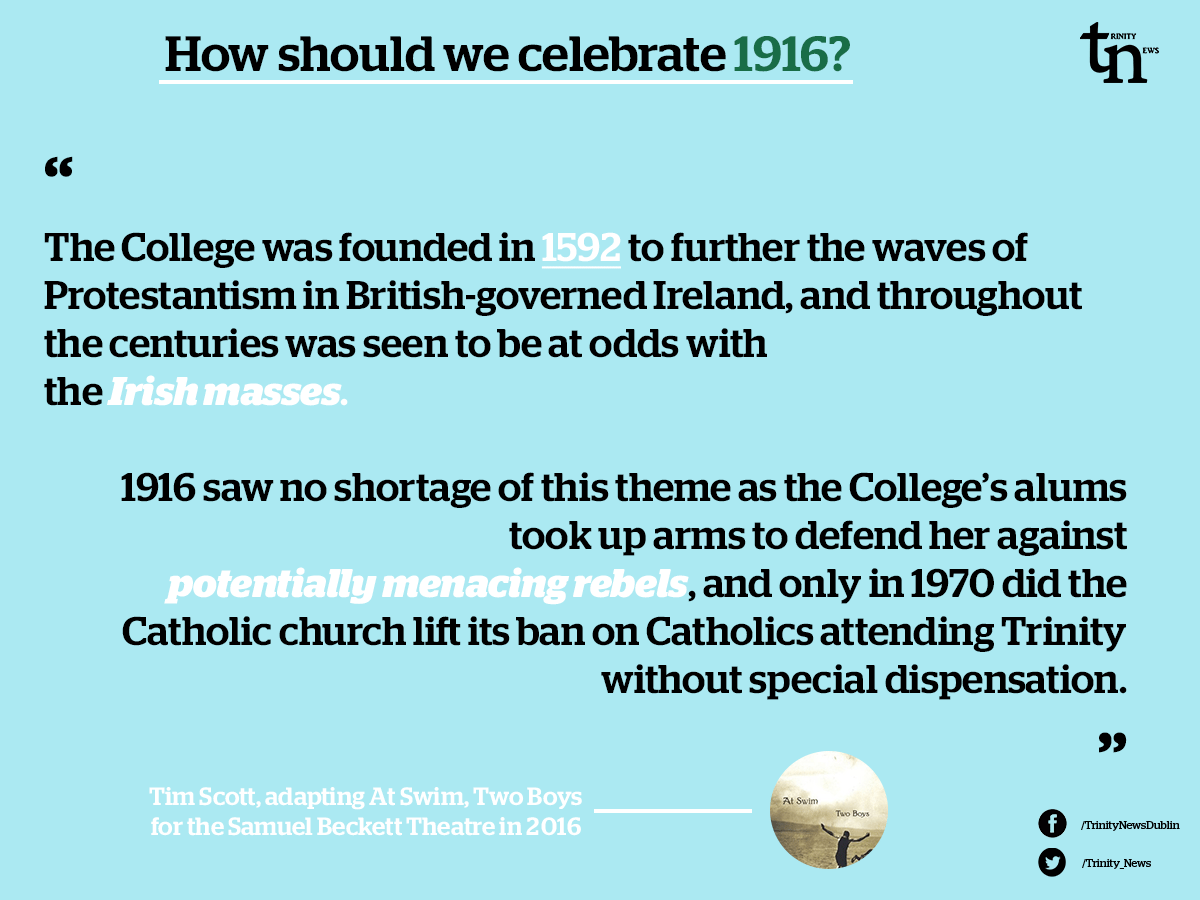Minister for Arts, Heritage and the Gaeltacht, Heather Humphreys TD recently launched Trinity’s 2016 programme of events, ‘Trinity and the Rising.’ The programme includes lectures, tours, a relaunch of the free and online MOOC run by the Department of History, the Changed Utterly blog hosted by Trinity Library, a debate hosted by the Historical Society, and a public reading of the 1916 Proclamation on the steps of the Dining Hall on March 15.
Trinity News invited a selection of the individuals taking part in these events to respond to the question of how they think 1916 might best be commemorated, and what responsibility Trinity has to Ireland’s histories. In the third installment of this series, Trinity News speaks to Tim Scott.
Tim Scott
As the Republic’s premier institution of higher education, Trinity has a responsibility not only to engage with the nation’s history and culture, but to curate and preserve it as well. 1916 is such an important moment in recent Irish history. The events of Easter Rising sharply segment the centuries of British dominion from the beginnings of the Irish republic. As an actively visible body in the Irish narrative, Trinity needs to commemorate the importance of the rebellion to the country as well as its own role in the tale. The College was founded in 1592 to further the waves of Protestantism in British-governed Ireland, and throughout the centuries was seen to be at odds with the Irish masses. 1916 saw no shortage of this theme as the College’s alums took up arms to defend her against potentially menacing rebels, and only in 1970 did the Catholic church lift its ban on Catholics attending Trinity without special dispensation. Still, slowly but surely Trinity has crept onto the canvas of the independent, Irish identity.
Now in the throes of this decade of commemorations, Trinity is making efforts to celebrate the fledgling Irish identity and the university’s role therein, but special attention must be paid to 1916. If Trinity were to embrace the Easter Rising with an initiative sponsoring all its 1916 projects, nothing would affirm its role more strongly as a symbol of Ireland, and not just a fortress containing Britain within Ireland. The Beckett Centre, plans to present a theatre festival this summer intended to mark the centenary. Headlining this festival will be our adaptation of an historical fiction novel set against the Easter Rising called At Swim, Two Boys by Jamie O’Neill. The show was the catalyst behind the festival. We’re delighted to make our contribution to the centenary commemorations, but we’re eager to see where else Trinity plans to respond within the university community. Interdepartmental ideas often get lost in the ether at Trinity due to poorly executed communication, no matter how strong or well intentioned those ideas may be. This moment, however, is an undoubted milestone in the Irish narrative; Trinity’s response should be one of resounding participation and reflection.
At Swim Two Boys by Jamie O’Neill was first published in 2001. Tim Scott has adapted the play to be performed at the Samuel Beckett Theatre from the 6-11 June, 2016. He is a Senior Sophister student in TSM Classical Civilisations and Drama.







